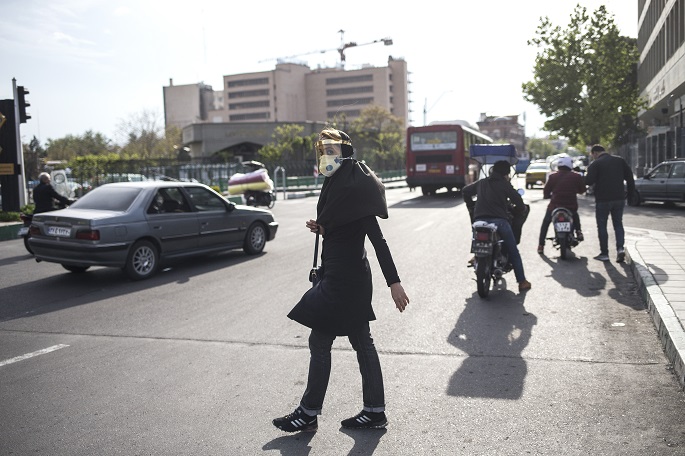Iran re-opens low-risk businesses
Published : 19 Apr 2020, 22:21
Iran's capital Tehran was allowed to resume low-risk businesses on Saturday, a week after kindred deregulations were adopted in other parts of the country amid the COVID-19 epidemic.
The move came as per the smart distancing plan, whereby Iran loosened quarantine regulations and allowed the re-opening of businesses with lower risk indices.
According to Iran's Ministry of Health and Medical Education, high-risk economic activities involving cultural and sports centers, beauty salons, hotels, indoor shopping malls and traditional roofed Bazarres will remain suspended until further notice.
The ministry has stressed that the businesses eligible for reopening should observe the health protocols or they will be fined and shut down.
Under the plan, government offices will be open from 7 a.m. to 2 p.m. local time, with one third of the civil servants undertaking distance working.
Iranian President Hassan Rouhani earlier said the reopening of businesses "does not mean ignoring the stay-home principle."
However, according to a survey by the Social and Cultural Studies Department of Tehran Municipality released by Financial Tribune daily on Saturday, 69 percent of the residents of Tehran cannot afford to stay at home in self-quarantine, as their savings won't last longer than a month.
Besides, the Industries, Mining and Commerce Ministry has announced that nearly one third of all Iranian industries are located in Tehran Province, which makes stay-at-home and social distancing impossible for workers.
Hojjat Mirzaie, an official with the ministry of cooperatives, labor and social welfare, said about 600,000 people have filed for unemployment over the past 20 days because of the pandemic, Financial Tribune reported Sunday.
"These people were mostly employed in the service sector," Mirzaie said.
Also, Ali Rabiee, the government spokesman, said the economy could lose up to 4 million jobs.
Pedram Soltani, former deputy head of Iran Chamber of Commerce, Industries, Mines and Agriculture, said economic losses resulting from the closure of businesses exceed the costs of combating the novel coronavirus, Financial Tribune daily reported Sunday.
To tackle the economic impacts of the disease, Majid Reza Hariri, chairman of Iran-China Chamber of Commerce, said the government needs to lend more support to the public.
"It might be necessary to accept a short-term increase in inflation and provide zero-interest loan to people," Hariri was quoted as saying by Tasnim news agency.
"However, a misguided approach would lead to hyperinflation. We need to arrive at a single solution by integrating the opinions of taskforces and committees," he added.
The Iranian government announced last month that it had approved a 4.7-billion-U.S.-dollar package to help low-income households and businesses through the novel coronavirus crisis.
The loans would be given to small and medium-sized enterprises hit hard by the pandemic, according to the website of the Central Bank of Iran (CBI).
The lending rate would be 12 percent to be repaid within two years, said the CBI governor Abdolnasser Hemmati, adding only businesses that did not lay off workers during the pandemic crisis would be eligible for the loans.
Besides the COVID-19 ramifications, Iran is fighting the unprecedented economic and financial sanction pressures of the United States.
According to the recent reports, Washington has blocked Tehran's 5-billion-dollar emergency loan request from the International Monetary Fund.
Rouhani on Saturday urged the health authorities to outline the conditions for reactivating medium-risk businesses as the country's infection pace has slowed down, according to official IRNA news agency.


